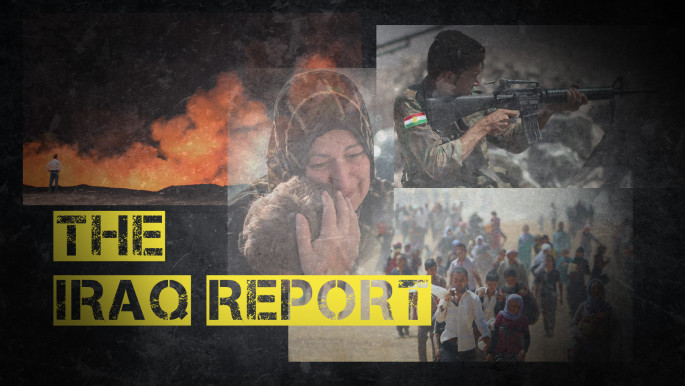Decades-long Iraqi-Kurdish alliance 'at risk of deterioration'
Harsh differences between the Kurdish parties and the ruling National Alliance in Iraq – which consists of seven blocs and religious political parties, most of which are loyal to Iran – threaten the potential disintegration of the alliance between the two parties, Kurdish officials revealed to The New Arab.
The alliance, which has for several years managed to maintain the balance among Iraq’s elite, is at risk of failure, after the escalation of several issues and sensitivities.
The Kurds insist on secession from Iraq and the declaration of a Kurdish national state in the northern part of Iraq, which has been semi-autonomous from Baghdad since the US occupation of the country. However Iraqi authorities strongly reject the proposal.
Among the issues causing tensions between the two factions include the country’s oil and gas, disputed territories, the status of the Kirkuk province as well as salaries of the Kurdish Peshmerga forces.
Despite the centrality of these issues, the Kurdish insistence to organise a referendum to determine the fate of the region is the most prominent.
 |
Among the issues causing tensions between the two factions include the country’s oil and gas, disputed territories, the status of the Kirkuk province as well as salaries of the Kurdish Peshmerga forces |  |
Earlier this month, Erbil’s provincial government announced it will hold a public referendum in three provinces by the end of this year.
The ongoing crisis finally escalated between the two allies after the President of the National Alliance, Ammar al-Hakim said he knows not of any state that welcomes the secession of Kurdistan except Israel, emphasising his categorical rejection to the division of the territory.
 |
|
| Read also: The Iraq Report: From Mosul gains to foreign disputes |
MP Beriwan Khailani, a member of the Kurdistan Democratic Party, described the statements as "shocking and painful and an insult to the Kurdish people."
During a meeting with German’s foreign minister, the President of Iraq’s Kurdistan region Massoud Barzani slammed those denouncing the referendum as having ”not understood the situation well.”
”The decision on referendum has been made and parties have currently engaged to set up the timeframe and the next phases,” Barzani said.
“Holding a referendum is intended to communicate the opinions of the entire Kurdistan nation to the world. This is a process for which we will be talking to other parties, especially Baghdad. This doesn’t mean we will immediately be adopting the path of violence. Rather, we will be choosing the path of peace and dialogue.
"Mutual understanding and reaching a result which the nation of Kurdistan approves will contribute further to the interests of the region,” he added.
According to Kurdish sources in Erbil that spoke with The New Arab, the Kurds began to review their position of their alliance with the parties and blocks of the National Alliance.
"We can turn the table and change the political equation in Iraq," a senior Kurdish official said in an interview with The New Arab, in a clear hint at the possibility of a coalition with Sunni and civilian blocs to form a majority bloc in parliament that would allow it to form the next government after country’s next elections.
 |
We can turn the table and change the political equation in Iraq |  |
The official pointed out that "there will be a new alliance which is different from the alliances of the past elections, and it can be said that phase which brings together the Kurds and the Shia blocs in one basket, no longer exists today.”
“There are blocs and parties within the Shia-led National Alliance that can be can be dealt with, but this does not include the Nouri al-Maliki’s wing nor the Hashed al-Shaabi (Popular mobilisation Forces)," the official said.
"Kurdish forces have a clear-cut vision regarding this subject and the other party also understands the Kurds’ cards on this topic.”
Meanwhile, the MP for the Kurdistan Alliance, Amira Zankana said in an interview with The New Arab that "the National Alliance is requested to review its positions and statements regarding the Kurds and the Kurdistan region, and must work to end and seize the damage caused by the previous government to cut salaries of the region's staff as well as its budget."
"Iraq’s political blocs are well aware of the internal and external weight held by Massoud Barzani, and know that he will not give up his promises and political commitments," she warned.





 Follow the Middle East's top stories in English at The New Arab on Google News
Follow the Middle East's top stories in English at The New Arab on Google News


